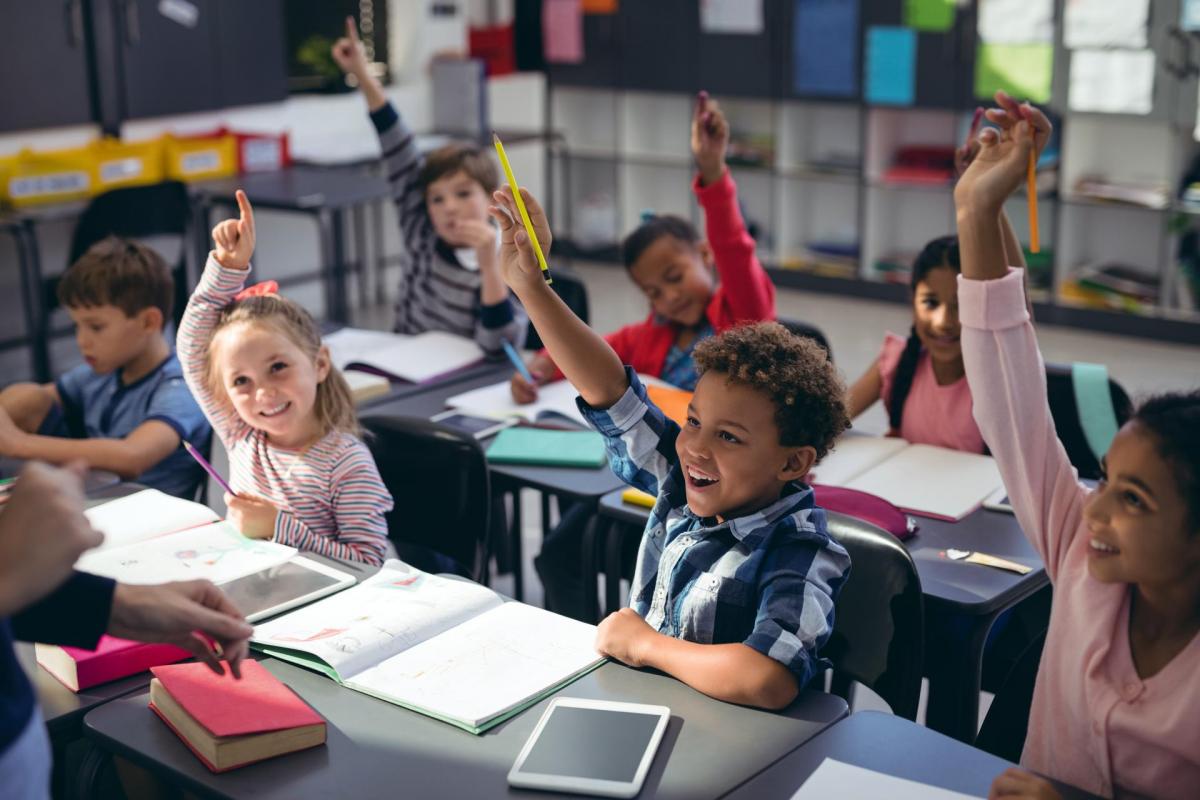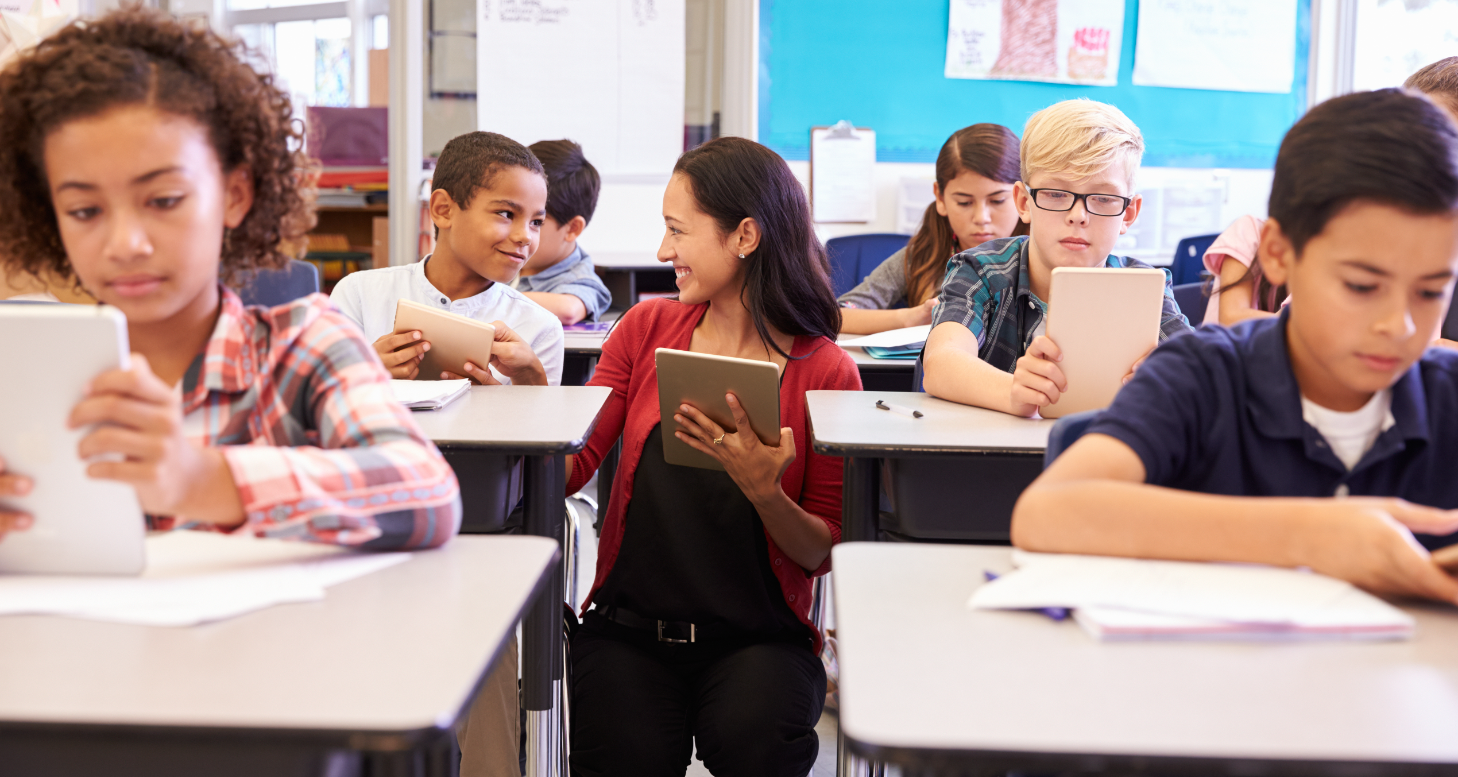Exploring what makes Grade School Peoria different in shaping students
Everything about Kindergarten: Understanding the Importance of Early Childhood Education And Learning Programs
Kindergarten acts as a critical point in a child's early growth. It presents fundamental abilities vital for future knowing and social interactions. Through various tasks, kids take part in organized play that advertises cognitive growth. Comprehending the subtleties of different kindergarten programs can additionally illuminate their importance. What details advantages do these very early education and learning experiences supply, and just how do they form a youngster's trajectory? The responses might be extra complicated than one may anticipate.

The Role of Preschool in Kid Development
Although some may watch preschool just as a transition stage before formal schooling, it plays a crucial duty in child growth. This foundational stage cultivates important social, emotional, and cognitive abilities that are critical for lifelong understanding. In preschool, children involve in structured play, which boosts their capacity to coordinate, share, and fix disputes with peers. These communications lay the groundwork for healthy and balanced partnerships and boosted interaction abilities.
In enhancement, kindergarten introduces kids to standard ideas in literacy and numeracy, stimulating inquisitiveness and a love for discovering. Teachers direct pupils through activities that advertise important and problem-solving reasoning, vital components of intellectual growth. In addition, the setting emphasizes regular and structure, helping youngsters develop self-control and freedom. By concentrating on holistic growth, kindergarten warranties that kids are not just ready academically but likewise socially and mentally for the obstacles of future instructional endeavors.
Key Advantages of Very Early Youth Education
Early youth education supplies many advantages that can significantly influence a youngster's advancement and future success. Research suggests that youngsters that join top quality very early education and learning programs display improved cognitive abilities, better language development, and enhanced social skills contrasted to their peers that do not go to such programs. These fundamental skills are crucial as they set the phase for scholastic accomplishment and lifelong discovering.
Moreover, very early education cultivates psychological advancement by giving youngsters with chances for participating play and dispute resolution, assisting them create durability and empathy. Grade School Peoria. Furthermore, these programs often help connect the gap for kids from varied backgrounds, making sure equitable accessibility to learning experiences and resources
Ultimately, purchasing early childhood years education not just advantages specific kids yet also adds to stronger areas, as enlightened individuals are more probable to engage favorably in culture and the workforce.
Different Kinds Of Preschool Programs
Various kindergarten programs cater to different academic approaches and requirements. Full-day choices supply prolonged knowing time, while the Montessori approach stresses freedom and hands-on experiences. Furthermore, play-based understanding techniques foster imagination and social skills, illustrating the variety in early childhood years education and learning.
Full-Day Preschool Options
Lots of parents and teachers acknowledge the expanding relevance of full-day kindergarten alternatives in very early youth education. Full-day programs usually offer a more detailed learning experience, allowing youngsters to take part in a selection of activities throughout the day. These options usually include a well balanced educational program that incorporates academic, social, and psychological development. Some areas provide conventional full-day preschool, while others might supply specific programs, such as double language or thematic discovering settings. Furthermore, full-day preschool can accommodate working moms and dads by straightening school hours with normal work routines. Study recommends that students in full-day programs usually demonstrate enhanced scholastic efficiency and social abilities compared to their peers in half-day setups, making these alternatives progressively popular in several neighborhoods.
Montessori Strategy Overview
Although the Montessori technique is simply among many academic approaches, it has actually gained considerable interest for its special focus on child-led learning and exploration. Established by Dr. Maria Montessori, this technique concentrates on cultivating freedom and self-directed task in youngsters. Class are commonly made to urge activity and hands-on involvement with materials, allowing children to learn at their very own rate. Montessori instructors offer as overviews, promoting finding out with observation instead of direct instruction. This approach prioritizes mixed-age classrooms, advertising cooperation and peer understanding. Furthermore, the Montessori technique emphasizes practical life skills and sensory tasks, helping children create a solid foundation in both academic and social proficiencies. Parents frequently appreciate the all natural growth that this technique nurtures in their youngsters.
Play-Based Discovering Methods
Play-based knowing strategies are indispensable to many kindergarten programs, stressing the value of play as a fundamental setting of discovering for young kids. These approaches motivate expedition, imagination, and social interaction, permitting children to involve in hands-on experiences that promote cognitive and emotional development. Numerous sorts of play, such as creative, constructive, and physical play, are used to support discovering objectives throughout go to this website topics like mathematics, scientific research, and proficiency. Furthermore, play-based programs often include collaborative tasks, advertising synergy and interaction skills. Educators observe and assist children throughout play, guaranteeing that finding out outcomes are accomplished while keeping a joyful discovering setting. This approach not only improves scholastic readiness but likewise grows a long-lasting love for learning, making it a crucial component of early youth education and learning.
The Relevance of Play in Learning
A considerable body of study emphasizes the critical role of play in early youth original site education, showing its extensive influence on understanding and growth. Play functions as an important mechanism whereby young kids explore their atmosphere, establish cognitive skills, and improve their analytical capabilities. Involving in imaginative play enables kids to try out different roles and scenarios, fostering creativity and critical thinking.
Play-based understanding motivates kids to engage with products and ideas in a hands-on way, making abstract ideas a lot more concrete and reasonable. This experiential learning method not just catches kids's interest yet likewise advertises innate motivation, basic for lifelong learning.
Via play, kids also fine-tune their motor abilities and spatial understanding, preparing for a lot more complex scholastic tasks. Basically, prioritizing play in very early youth education programs is crucial for nurturing all natural development, outfitting kids with the fundamental skills essential for their future academic trips.
Social Skills Growth in Kindergarten
Structure on the structure established via play, kindergarten acts as a vital atmosphere for social abilities advancement. Throughout this formative phase, children take part in structured activities that motivate interaction with peers. Through team jobs, cooperative games, and shared jobs, they learn crucial abilities such as conflict, empathy, and interaction resolution.
Educators facilitate these communications, guiding children in comprehending social signs and fostering positive connections. As kids browse numerous social situations, they develop a sense of belonging and discover to appreciate varied point of views.
In addition, kindergarten provides opportunities for kids to practice turn-taking, sharing, and settlement, which are crucial for constructing relationships. These experiences not only enhance social competence but also add to psychological knowledge. Consequently, the social abilities obtained in kindergarten lay the groundwork for effective communications in later instructional setups and throughout life. The value of social abilities advancement in kindergarten can not be overstated.
Adult Involvement in Very Early Education And Learning

When moms and dads show a passion in their youngster's education and learning, it grows a favorable mindset towards knowing. When they really feel sustained, kids are much more likely to develop a feeling of belonging and inspiration to be successful. Additionally, adult participation can improve a kid's emotional well-being, bring about better durability in dealing with school obstacles. Cultivating a collective environment in between home and school is important for maximizing very early educational experiences and end results.
Getting ready for the Transition to Primary School
As youngsters approach completion of their kindergarten trip, getting ready for the adjustment to elementary college ends up being progressively essential. This shift needs mindful planning and assistance from both parents and teachers. Acquainting children with the brand-new environment, routines, and assumptions of primary school can relieve their anxiousness and promote confidence.
Colleges frequently give orientation sessions that introduce youngsters to their future classrooms and instructors, cultivating a sense of belonging. Furthermore, moms and dads can engage in discussions regarding the adjustments ahead, highlighting the amazing opportunities for discovering and social communication.
Motivating independence in everyday jobs, such as complying with a timetable and clothing, can also be valuable. Practicing necessary abilities, such as letter recognition and basic math, prepares kids academically for initial grade.
Ultimately, a collective initiative amongst parents, educators, and the neighborhood assures a smoother change, laying a solid foundation for a successful academic journey.
Often Asked Concerns
What Certifications Should Kindergarten Educators Have?
Preschool instructors must have a bachelor's level in very early childhood education or a related area, along with state certification. Additional qualifications may consist of specialized training in youngster growth, class administration, and efficient teaching methodologies.
Just how Do I Pick the Right Preschool Program?
To select the best kindergarten program, one should consider variables like educational program, mentor methods, course dimension, instructor qualifications, and parent testimonials. Checking out facilities and observing communications can additionally supply important insights right into the program's atmosphere.
What Should My Child Learn in Preschool?
In preschool, a child should find out foundational abilities such as fundamental reading and writing, counting, social communications, problem-solving, and electric motor skills. These expertises promote cognitive development and prepare them for future instructional difficulties.
Exist Age Demands for Kindergarten Registration?
Many states call for kids to be 5 years old by a particular date, commonly September 1st, for kindergarten registration. Nevertheless, specific age demands can differ, so inspecting neighborhood institution area policies is crucial.

Exactly How Can I Assistance My Youngster's Learning in your home?
To support a kid's understanding at home, parents can establish a routine, supply interesting instructional materials, encourage reading, take part in hands-on activities, and foster open interaction to support inquisitiveness and essential thinking skills.
Kindergarten serves as a vital phase in a kid's very early advancement. Some might check out preschool simply as a changeover phase before formal schooling, it plays an important function in kid advancement. In addition, kindergarten introduces children to basic concepts in proficiency and numeracy, triggering inquisitiveness and a love for understanding. Play-based understanding approaches are indispensable to countless preschool programs, highlighting the significance of play as a fundamental mode of finding out for young youngsters. In preschool, a child should learn fundamental abilities such as fundamental reading and writing, counting, social communications, analytical, and motor skills.